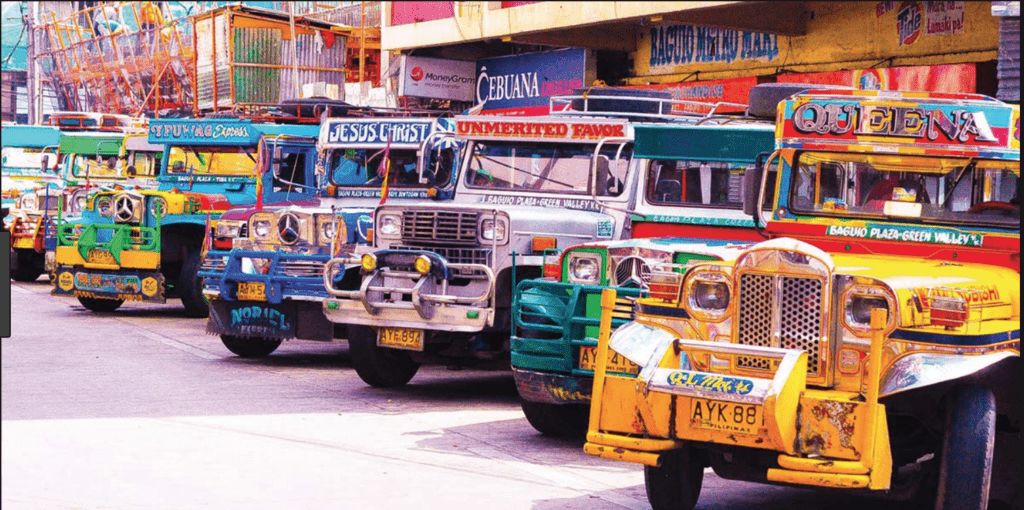16/01/2024
16/01/2024

PHILIPPINES, Jan 16: "They rattle through neighborhoods all over the Philippines decked out in gaudy hand-painted liveries featuring everything from the Virgin Mary to NBA stars, shuttling millions of people on their daily commutes to the tune of blaring horns and rumbling engines," describes the iconic jeepneys, affectionately known as the "king of the roads." This form of public transport, born out of post-World War II resourcefulness, emerged when local mechanics converted jeeps abandoned by American troops to accommodate civilian passengers.
"With roughly 200,000 jeepneys across the country, they remain an affordable form of transportation in a country where the average annual income is around $3,500," notes the article. Jeepney fares starting at just 20 cents serve about 40% of commuters, providing a vital link to workplaces, schools, and malls.
However, the government aims to replace these often worn-out, highly polluting diesel-powered vehicles with new minibuses. Jeepney drivers have long argued that the cost to transition to cleaner vehicles is beyond their reach, while commuters fear potential fare hikes with the introduction of new vehicles.
Mar Valbuena, chairman of transport group Manibela, expressed concerns about police attempts to stall jeepney drivers from protesting, stating, "We cannot proceed because some of our members were stuck at police checkpoints this morning… Some have been held at various police checkpoints for nearly two hours." Valbuena expects around 15,000 jeepney drivers to protest the mandatory retirement program, arguing that the scheme was "not studied properly."
The central concern of the transport group revolves around the lack of funds in the government scheme, placing pressure on drivers to take hefty loans to comply with the modernization plans.
The uncertain future of jeepneys began in 2017 when the transport ministry ordered the replacement of vehicles over 15 years old with imported minibuses. These minibuses offer more spacious seating, and air-conditioning, and run on cleaner fuel but come with a steep price tag of about $50,000, far beyond the reach of many drivers.
Jeepney driver Joseph Sabado highlights the financial challenges, stating, "We really can’t afford that… even if we take out a loan, we’d be in debt until we die." Reluctance to upgrade stems from jeepneys being mostly privately owned and run by a sole proprietor, making the transition financially burdensome for individual drivers.
To qualify for government loans and subsidies, drivers and small-time operators must join cooperatives or corporations, owning both the buses and the public franchises. While the government initially aimed to mandate the switch by March 2020, the deadline has been pushed back three times due to the COVID-19 pandemic.
With a firm deadline for jeepney operators to surrender their franchises ending on December 31, 2023, those who failed to join a cooperative will no longer be allowed to drive certain routes starting in February, according to Zona Russet Tamayo, a director at the Land Transportation Franchising and Regulatory Board.
Chairman Teofilo Guadiz III emphasized the board's determination to implement the program, stating, "We will continue to calibrate each component of the program in response to the clamor of the stakeholders. We will remain focused on the program’s primary beneficiaries – the commuters. We believe that overcoming the program’s challenges will dramatically transform our transport system."
Official data indicates that roughly 76% of jeepney owners have consolidated under the program, with over 1,700 cooperatives formed. However, activists dispute these figures and demand the government rethink its plan.
"It’s their right to protest, but commuters said they are tired of it. The important thing is that the consolidation is done," commented Andy Ortega, head of the Office of Transport Cooperatives, addressing concerns of commuters amidst the ongoing protests.


